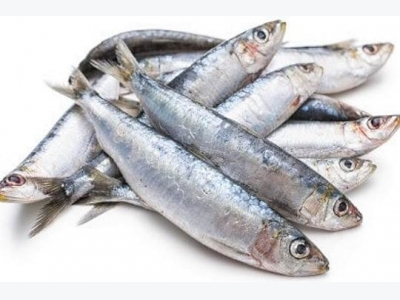Spain and Portugal to propose management plan for Iberian sardine

The fishing authorities of Spain and Portugal have committed to submit a multi-year recovery plan for the Iberian sardine to the European Commission (EC) before December 4.
The Secretary General of Fisheries of the Ministry of Agriculture and Fisheries, Food and the Environment (MAPAMA), Alberto Lopez-Asenjo, and his Portuguese counterpart, Jose Apolinario, met in Brussels with the Director General of the European Commission for Maritime and Fisheries Affairs, Joao Aguiar Machado, with the objective of jointly analyzing a possible Iberian sardine management plan that allows the maintenance of its fishery at a level that ensures its biomass growth.
The sardine is a key species in Spain and Portugal, and in both countries it has a significant impact from the social and economic point of view, both from the fishery itself and in the associated industry.
Therefore, after several weeks of joint work between the two countries, this meeting has served to present a set of measures to the Commission to manage the Iberian sardine stocks that would ensure that fishing activities are environmentally sustainable over the the long term while allowing to generate economic, social and employment benefits. Objectives all of which are at the very foundation of the Common Fisheries Policy (CFP).
The proposal that has been advanced to the Commission is constituted as an alternative to the recommendation of the International Council for the Exploration of the Sea (ICES) to close the fishery in 2018. Even recognizing the worrying stock status and based precisely on this recommendation, Spain and Portugal defend that the proposed objectives can be assured.
They have also recalled that if the fishing mortality is at the lowest levels of the whole historical series, it is due to the enormous efforts deployed by Spain and Portugal in recent years, and especially since the joint management plan was approved.
Therefore, the two countries have reaffirmed to the Commission their firm willingness to continue working together in the same line, which has been giving good results to date and which will make it possible to continue guaranteeing the sustainability of this fishery in the long term, both environmentally and from the social point of view.
As a result of this meeting, the governments of Spain and Portugal have pledged to submit a detailed plan to the EC, before December 4, for the year of recovery that will include those measures that have already been advanced in this meeting.
These include the establishment of temporary closures for the recovery of juveniles, moratorium, minimum sizes, landing limits, and the reinforcement of controls as well as scientific research for the evaluation and monitoring of the proposed measures.
Có thể bạn quan tâm
 Canada holds promise for Vietnam farms
Canada holds promise for Vietnam farms Although Canada is a major producer of seafood, it still imports a variety of sea products from Việt Nam, especially black tiger shrimps.
 Use of Industry 4.0 technologies in aquaculture discussed
Use of Industry 4.0 technologies in aquaculture discussed Aquaculture has contributed to over 60 percent of the country’s fishery outputs and created jobs for more than one million people in Vietnam.
 Auburn develops vaccine to fight costly catfish disease
Auburn develops vaccine to fight costly catfish disease Columnaris disease can affect nearly all freshwater fish species and causes millions of dollars in annual losses in the catfish industry alone.